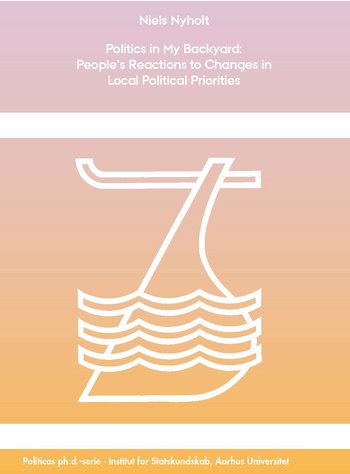Niels Nyholt
Politics in My Backyard: People’s Reactions to Changes in Local Political Priorities

Changes in local political priorities constitute some of the most prominent experiences people have with political decisions. When a local school or hospital closes, it affects citizens' well-being along with the prospects, status, and prestige of the local area. Political candidates are thus also quick to make local appeals and promote their local credentials. This dissertation examines how people’s experiences with changes in local political priorities and local appeals affect their political behavior. Why do voters respond to local appeals? How do they link their local experiences with changes in local political priorities with support for incumbents? And is the draw of populist messages affected by changes in local political priorities? These questions are explored in three studies that draw on experimental data and highly detailed observational data. Overall, the studies show that voters prefer local candidates partly because they expect them to represent their local areas' substantial interests. Nevertheless, the studies also show that retrospectively, voters far from always respond to changes in local political priorities. These findings give rise to discussions of the conditioning factors for context effects. People have to notice changes in local political priorities for them to have an effect. While it is hard to miss a school or hospital closure, more gradual changes in overall spending on public jobs can go unnoticed. The dissertation thus shows that there are limits to local appeals in parallel with changes in local political priorities being pertinent to people's political behavior.
![]() Ophavsretten tilhører Politica. Materialet må ikke bruges eller distribueres i kommercielt øjemed.
Ophavsretten tilhører Politica. Materialet må ikke bruges eller distribueres i kommercielt øjemed.